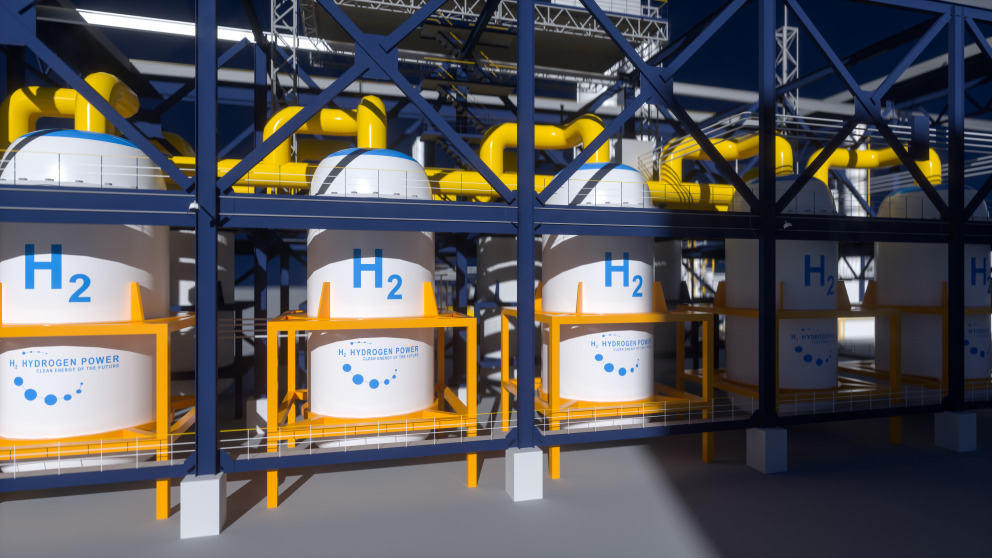France’s Hydrogen Vision and Its Significance for Europe and Beyond

An online discussion jointly organized by the Research Institute for Sustainability (RIFS Potsdam) and the Institute for Sustainable Development and International Relations (IDDRI, Paris)
on 4 July 2023, 11:00 - 12:30 (CET), Zoom
France has been one of European hydrogen frontrunners, adopting an ambitious 9 billion EUR national Hydrogen Strategy in 2020. Hydrogen technologies are considered essential for decarbonizing French energy-intensive industry and heavy mobility and for maintaining future industrial competitiveness. In the race for technological leadership, France can draw on its surplus nuclear power and a significant renewable energy potential, world-class innovation clusters, strong political support at the national and regional level, and the presence of several global-scale private players.
At the same time, with its strong emphasis on energy independence, France has been sceptical about the EU’s vision of large-scale hydrogen imports and reluctant to actively promote a cross-European hydrogen infrastructure. It has deployed significant efforts at EU level to defend a definition of “green” hydrogen that includes nuclear-based hydrogen but has shown less interest in international partnerships than other Member States. This stance, however, is not uniformly shared by all hydrogen stakeholders in the country and has put pressure on France’s relationship with its European partners on the issue of hydrogen development.
- What are the main drivers of France’s hydrogen policy and who are the main stakeholders?
- What sets French hydrogen policy apart from the policies of other key EU member states?
- How does France view its own place in the emerging international hydrogen economy and how does this fit in with the EU’s vision?
- Why is France’s hydrogen strategy important for Germany and how is it viewed there?
You are warmly invited to join us online on 4 July 2023 to debate these issues with French, German and other European stakeholders.
Agenda
Opening Remarks
Holger Klitzing, Head of Unit, Geopolitics of Energy Transition/ Hydrogen Diplomacy, German Federal Foreign Office
France’s Hydrogen Strategy: Domestic and International Dimensions (presentation of the joint RIFS/IDDRI discussion paper)
Ines Bouacida, Research Fellow, Climate and Energy, IDDRI
Discussion: Views from the French government and corporate stakeholders and the German perspective
Julien Agier, Project manager for hydrogen and new renewable gases, Directorate-General for Energy and Climate, French Ministry for Energy Transition
Sylvie Denoble-Meyer, Group Hydrogen Deputy VP, ENGIE
Rainer Quitzow, Research Group Leader, Geopolitics of Transitions in Energy and Industry, RIFS Potsdam
Q&A with the audience
Moderation
Yana Zabanova, Research Associate, RIFS Potsdam
Registration link here
More information:
RIFS/IDDRI Discussion Paper „France’s Hydrogen Strategy: Focusing on Domestic Hydrogen Production to Decarbonise Industry and Mobility” (June 2023), by Ines Bouacida
"France’s Hydrogen Strategy: Domestic and International Dimensions” Presentation by Ines Bouacida, IDDRI (Paris)
Contact: Yana Zabanova (RIFS Potsdam): yana [dot] zabanova [at] rifs-potsdam [dot] de (yana[dot]zabanova[at]rifs-potsdam[dot]de)
This event is part of the RIFS online discussion series featuring national hydrogen strategies in select European and global frontrunner countries. It is held within the framework of the project “Geopolitics of the Energy Transformation: Implications of an International Hydrogen Economy” project funded by the German Federal Foreign Office.
